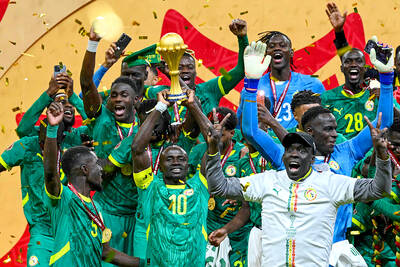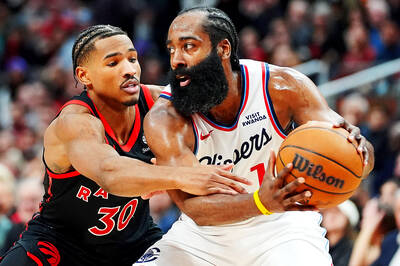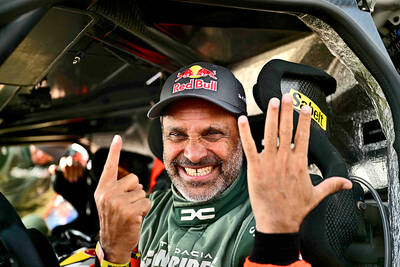Are champions born, or raised? That is the question scientists in Argentina are trying to answer as they look to pinpoint the genes that make local horses the best in the world for playing polo.
In Argentina, polo is a big deal and big business, and to that end, cloning has already been used to reproduce the finest existing mounts.
However, scientists want to go one step further and map the entire genome of the Argentine polo horse to create the perfect specimen.
From next month, a group of five universities is to analyze 80,000 horses from the breed as part of a project that will try to identify the ideal genetic balance that makes up a polo horse.
The Argentine horses used to play polo have been bred specifically over decades by crossing a Criollo line, descended from the original pure-blooded Andalusian and Arab mounts transported to the New World by Spanish conquistadores, and English thoroughbreds, introduced at the end of the 19th century, when British immigrants also imported polo.
For veterinarian Guillermo Buchanan, the Argentine polos “are unique” because of their speed and durability, and because of their mix of explosiveness and docility.
During a polo match, these horses, also known as “polo ponies” due to their agility, “change direction at speed, slow down, turn, accelerate while turning,” said admiring horse breeder Pablo Trigo, who is also comanaging the project.
The Argentine polo ponies distinguish themselves in their rate of learning and sensibility to their rider’s desires. They are the most cloned animal in the world.
At stud farms in the Buenos Aires area, they are looked after as if works of art. Now science is being used to figure out how to reproduce the finest animals.
The project is expected to start producing results within three years and would precede the launch of a genetic selection program aimed at optimizing the horses’ physical and temperamental characteristics.
There is nothing new about using applied research and biotechnology to improve polo ponies, but interest in the science is growing, as is the money people are prepared to pay for its results.
The clone of a legendary mare fetched US$800,000 at auction.
According to estimates, there are about 200 cloned Argentine polo ponies, many copies of elite-level mounts.
So far, all seem to be in excellent health.
Argentina “is absolutely at the cutting edge of applied research into polo ponies,” said geneticist Sebastian Demyda, one of the project’s leaders.
This includes every biotechnological technique from embryonic transfer to cloning and gender selection: mares are preferred because of their more docile temperament.
Argentina’s polo association accepts cloning — although not everyone considers this ethical and one private clinic specializing in embryo manipulation has ceased its activities.
“[Genetic] engineering is the limit,” Buchanan said, adding that tampering with individual embryos is a step too far.
However, cloning has become common practice in polo — and while clones were initially used only for reproductive purposes, now they are used in competition, too.
Elite players can have up to six or seven clones in their pens.
“The clones are doing very well, they’re winning prizes,” Demyda said.
However, cloning has its drawbacks, not the least of which when it comes to the gene pool.
“Clones narrow the race’s genetic structure, they’re like a photocopy,” he said.
When it comes to the sport, they also distort the playing field. Cloning costs a minimum of US$30,000, meaning only the richest can benefit.
“Cloning isn’t available to everyone, it’s very expensive and gives certain breeders an advantage,” he added.
While science can help favor certain physical and even temperamental traits at birth, training maintains a crucial and almost mythical role in the development of polo horses.
It can take seven years to train a polo pony, as it needs to be programmed into acting against its natural instincts.
Specialist Ezequiel Correa said that “what’s fundamental is that it has been well tamed,” although without using violence.
A horse needs to get used to the swinging wooden mallet brushing its sides, and the sound when it connects with the metal ball. It is a painstaking art form that requires small steps of just 20 minutes training per day.
“It’s like teaching a child to read one letter at a time. If you make it read in front of the class, you traumatize it,” said 33-year-old Correa, who has trained 20 horses. “If you expose a horse to polo before it’s ready, you traumatize it and it’s difficult to come back from that.”
Once that has been achieved, the next step is to establish “chemistry” between horse and rider.
“You need a special connection, there’s a unique form of communication using the legs. If it works, you can have a champion,” Correa said.
Science, it seems, cannot overcome every challenge.
“No one can identify the new [Argentine soccer star Lionel] Messi by genes,” Demyda said.

MARRED FINAL: As most of Senegalese players walked off the pitch after a controversial decision, some supporters threw objects and attempted to get onto the pitch Senegal on Sunday won the Africa Cup of Nations (AFCON) as Pape Gueye’s extra-time winner sunk hosts Morocco 1-0 after a chaotic final that saw the eventual champions storm off the pitch late in the game. Brahim Diaz could have won the trophy for Morocco with a controversial spot-kick in the 24th minute of added time at the end of normal time as ugly scenes broke out in the stands. However, Senegal goalkeeper Edouard Mendy easily saved the weak attempted “Panenka” chip by the Real Madrid winger, who was clearly distracted by the long delay that followed the penalty award.

James Harden on Friday scored 31 points and came up big in overtime to help the Los Angeles Clippers erase a double-digit deficit on the way to a 121-117 NBA victory over the Toronto Raptors. Harden scored 16 points in the fourth quarter and overtime as the Clippers pushed their wining steak to five games despite the absence of star Kawhi Leonard with a sprained right ankle. The Clippers trailed by 11 entering the fourth quarter, but Harden drilled a pair of free-throws with 1:24 left in regulation to tie it and after misses from both teams, they went to

Tobias Harris on Monday scored 25 points as the Detroit Pistons held off the Boston Celtics to score a 104-103 victory in their top-of-the-table Eastern Conference showdown. Harris was one of four Detroit players to finish in double figures, with Jalen Duren adding 18 points and point guard Cade Cunningham scoring 16 points with 14 assists. The win sees Detroit extend their lead at the top of the Eastern Conference to 31-10, 5.5 games ahead of second-placed Boston, who fell to 26-16 with the defeat. Jaylen Brown led the Celtics scoring with 32 points and almost snatched victory in the

Qatar’s Nasser al-Attiyah on Saturday secured his sixth Dakar Rally car title in Saudi Arabia with Luciano Benavides scraping home by two seconds to claim the motorbike title. “We’ve worked very hard since last year. I might not be showing much emotion yet, but it’s there, deep down. We are so happy to win,” al-Attiyah said at the finish. Al-Attiyah, at the wheel of a Dacia, only had to avoid a final day slip-up to top the podium after bringing his career tally of stage wins to 50 on Friday. The 55-year-old, who took clay pigeon shooting bronze at the